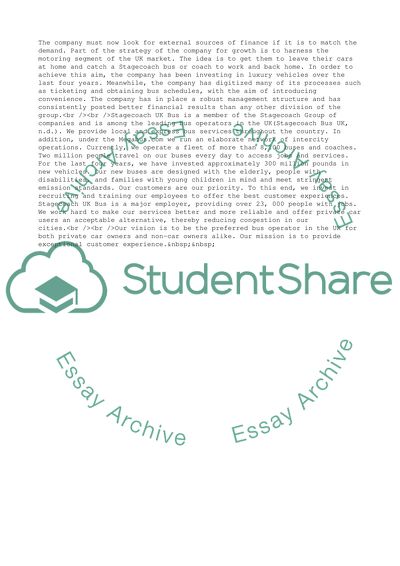Cite this document
(Business Plan for Stagecoach Bus Company Example | Topics and Well Written Essays - 1750 words, n.d.)
Business Plan for Stagecoach Bus Company Example | Topics and Well Written Essays - 1750 words. https://studentshare.org/business/1866099-stagecoach-bus-company-business-plan
Business Plan for Stagecoach Bus Company Example | Topics and Well Written Essays - 1750 words. https://studentshare.org/business/1866099-stagecoach-bus-company-business-plan
(Business Plan for Stagecoach Bus Company Example | Topics and Well Written Essays - 1750 Words)
Business Plan for Stagecoach Bus Company Example | Topics and Well Written Essays - 1750 Words. https://studentshare.org/business/1866099-stagecoach-bus-company-business-plan.
Business Plan for Stagecoach Bus Company Example | Topics and Well Written Essays - 1750 Words. https://studentshare.org/business/1866099-stagecoach-bus-company-business-plan.
“Business Plan for Stagecoach Bus Company Example | Topics and Well Written Essays - 1750 Words”. https://studentshare.org/business/1866099-stagecoach-bus-company-business-plan.


